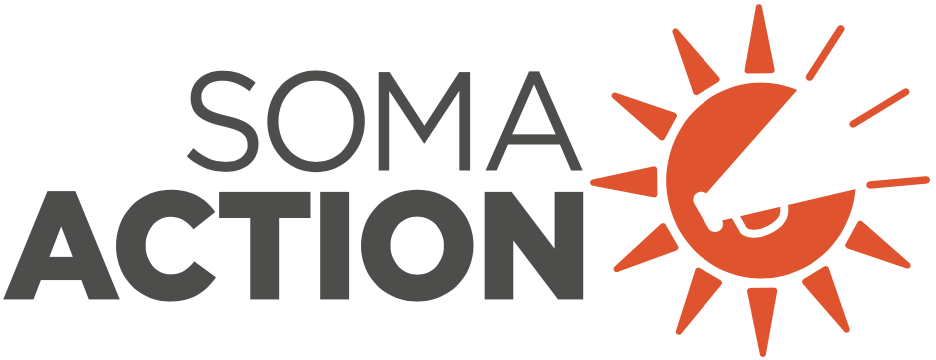7 Reasons Why Freeholder Elections Matter
by Rose Maura Lorre
Illustrations by Pete Cascio
With 2020 primary elections fast approaching in New Jersey (July 7!), you may be wondering not only who should get your vote for Essex County’s Chosen Board of Freeholders, but also what, exactly, a freeholder is.
You’re not alone. In fact, if you’re not a native New Jerseyan, you may have never even heard of a freeholder before. As NJ Spotlight points out, the Garden State is the only state in the U.S. that still uses the term instead of the more common “county commissioner.”
That’s why SOMA Action put together this brief overview of what freeholders are and why their role is so important. (If you’d like to know who we’re supporting in the 2020 Democratic freeholder race, you can find that here.)
A quick history lesson: “Freeholder” dates back to N.J.’s first state constitution, which stipulated that only certain property owners (who “freely held” land) could be elected to office, or even vote.
Now that you know the antiquated backstory of “freeholder” -- and with all four of Essex County’s at-large freeholders facing Democratic and Republican primary challengers on July 7 -- here are seven reasons why all New Jerseyans should carefully consider their votes in freeholder elections.
They’re your county government’s “customer service.”
Whether it’s un-plowed snow on county roads or un-picked-up trash in county parks, freeholders are your go-to point person. In fact, freeholders often campaign on their responsiveness to their constituents and their ability to get things done for you.
It’s always “Infrastructure Week.” As NJ.com reported in 2014, “Take a look at most freeholder agendas and… you'll find a big chunk of their action items have to do with seemingly boring but crucial topics — paving roads, repairing dams and building bridges.” That last one is especially key. As New Jersey Association of Counties Executive Director John Donnadio told the outlet, the vast majority of bridges statewide, aside from those that cross state lines, fall under freeholders’ purviews.
When it comes to social justice, they can move the needle on big, structural, changes statewide. For example, Essex County freeholders have passed resolutions supporting the legalization of marijuana statewide, calling on ICE to release civil detainees and calling for changes in policing to help protect black lives.
They’ve got veto power. The Board of Freeholders can overrule vetos made by Essex County Executive Joseph N. DiVincenzo Jr.
They’re like the human embodiment of sunshine laws. Other than things like contract negotiations and employment matters, a Chosen Board of Freeholders operates in public and is transparent by design. That’s unlike the County Executive, who can have closed-door meetings and even create policy in private. Likewise, freeholders’ votes to pass or reject legislation, select vendors and award contracts, etc. must be conducted via public meetings.
In Essex County especially, their individual platforms matter. Says West Orange resident Matt Dragon, who frequently interacts with county executives and freeholders in his advocacy work for correctional facility civilian oversight, “In a county where there's a single party in control, you want freeholders that are going to think for themselves and represent their constituents, not just stamp whatever the administration submits. Essex fits both those criteria.”
The buck stops with them -- literally. Essex County’s government website notes that the Board of Freeholders approves the county’s annual operating and capital budgets and designates staff to process and approve funding. Or, as SOMA Action Political Action Committee chairperson Rebecca Scheer succinctly puts it, “They decide where the money gets spent -- which is huge.”
Ready to cast that July 7 primary ballot? Remember that this election is being conducted primarily via Vote-By-Mail due to the COVID-19 pandemic. If you’re an active, party-registered voter in Essex County, you should have already received a Vote-By-Mail ballot, even if you’ve never voted by mail before. It must be postmarked by July 7 in order to be counted. You can also drop your sealed ballot in one of the county’s official ballot drop boxes, listed here. For additional information about voting in Essex County, contact www.essexclerk.com. For other New Jersey counties, you can find voting info here.
###
SOMA Action is a grassroots organization with more than 1900 members in South Orange and Maplewood (“SOMA”) New Jersey whose mission is to drive progressive change. Formed in the wake of the 2016 election, SOMA Action mobilizes residents of our two towns and neighboring communities to advocate for a broad range of progressive policies at the local, state and national level. We pursue results through education, activism, and exerting policy and electoral influence.
SOMA Action is a 501(c)(4) organization. Donations are not tax deductible.
For more information, contact info@somaaction.org

